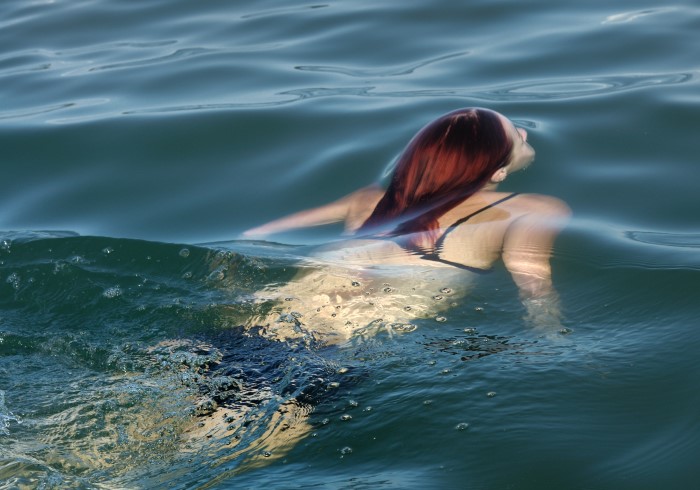The thought of cold open-water swimming might be enough to set your goosebumps off, but after a deep dive into the why, the benefits certainly outweigh the initial chill.
Floating, weightlessness, resilience and total freedom, this is what swimming means to me. Swimming in cold sea water is not a new concept. it has been around for centuries.
Swimming in cold water takes courage and bravery, and every cold swim reminds us of the most intricate personal matters. A key power of cold water swimming is its ability to induce the stress response in our bodies.
Building Resilience
Cold-water swimming will train us to build resilience in the face of adversity, which can be particularly helpful for those with anxiety and panic attacks. Immersing one’s face in the cold water may be the key of stimulating the vagus nerve – the human’s body communication highway and part of the parasympathetic nervous system – which helps to slow the heart rate, relax the body and activate metabolism.

The human stress response is designed to act as the body’s instinctive survival mechanism when you have been triggered by stress or environmental threats. The brain automatically floods the body with stress hormones, which throw us into a state of shock, and later stimulate the parasympathetic nervous system to regulate our metabolism – bringing physiological sensations and emotions back into equilibrium.
Reduce Inflammation
Cold water stimulates muscles to store more oxygen. Often, common physical ailments can be linked to low-grade inflammation, with many people living with constant aches and pain. When cold water is applied to specific areas of the body, the blood vessels constrict, restricting the blood flow to reduce inflammation.
As a personal experience, every week I play a football match which is putting a lot of pressure on my muscles and joints. I used tot take at least 48 hours to fully recover. A while ago, I started to swim in the cold sea right after the game. As a result, next morning I am managing to fully recover. I no longer feel any body inflammation and I am convinced it is due to the cold swimming in the sea.
Mindfulness in the Cold Sea
Beyond the physical sensations, nature can induce mindfulness. When you are in the water, you have to remain focused on moving and breathing, so for that time you are free from stress or anxiety. You are completely present. Swimming in the cold sea water takes courage and bravery, and every cold swim reminds you of those things within you. From there, you can realize your own power and resilience. It awakens a mindfulness in me. Because I swim in the sea water, the connection with nature has a powerful impact- it offers a perspective.

Moderation is the Key
If jumping in the cold waters of the sea or lake frightens you, we can’t blame you. It took me long years to try and feel the benefits.
You can begin to improve your wellbeing by gradually reducing the temperature of your morning showers. As you immerse your body into the colder and colder water, try to stay relaxed. Breathe deep and slow, to regulate your thermo-generative ability, and relax. Ideally you should continue this practice from home to an open water place (sea or lake).
Very soon, often after just 10 days or so, you should find that your body starts adapting, by generating enough heat to enjoy a deep sense of calm.
Safety Tips
- Enter the water slowly to allow your body to acclimatise
- Ideally swim with other people who are familiar with the waters
- Make sure people know where you are
- Be aware of your surroundings
- Wear a bright swimming cap, something to ensure you are visible in the water.
